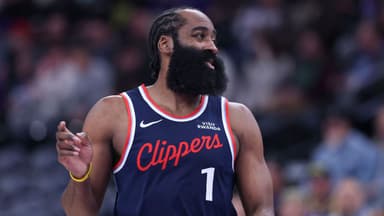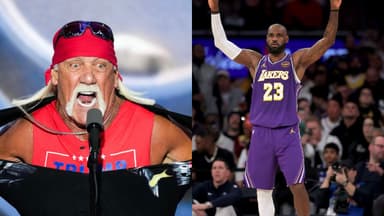Basketball is one of the purest sports that exist. Either you can put the ball in the basketball or you can’t. It’s as simple as that. But the business of basketball, particularly in the NBA at times supersedes pure skills on the hardwood. Every team is putting forth their best effort to win, but what if the franchise wants you to try your hardest to lose? It’s ‘business’ unfortunately.
Advertisement
For example, the 2002-2003 Cleveland Cavaliers had some pretty good weapons, including Ricky Davis, Zydrunas Ilgauskas, and Carlos Boozer on the squad. But the Cavs failed to put it together and dropped to a horrendous 17-65 record, which was the worst in the East by a country mile. The silver lining? Cleveland drafted a rookie out of high-school named LeBron James the following year due to their bad record.
During an interview on Out The Mud, Ricky Davis spoke about how the Cavs organization basically wanted the team to tank because they knew they had a real shot at getting The King. “My first time learning the business of basketball was Cleveland. My big experience with LeBron and getting traded and all that stuff,” he began.
The thing was, according to Ricky at least, he thought their Cavs roster could have faired well if they were allowed to play. “You’ve got a good nucleus of team that could survive in the east, that could make it to the playoffs, but you want us to lose. It makes sense. It worked for what they tried to do. Sometimes it don’t work.”
It is a shame to hear this. Sure, no organization wants to lose, and getting James clearly worked out for the league’s benefit. But pulling moves like that sometimes pushes fans away, in any sport. No one wants to wait or hear the term ‘rebuild’ over and over again. There is talent out there now. Go get it.
Davis admitted he felt the same way at the time. “There is no rookie that is going to come in here and help you win no championship. I’m just being honest. What they were saying in the moment is real. It panned out to be 20 years later and the greatest player ever so it looked bad when you play old film. But that’s what they were saying.”
The good thing is that Davis never felt insulted by what the Cavs wanted. He remained committed to balling out. “I was still on business. I really wasn’t even really tripping. I was on business man. That was the year I was averaging 24 points. I didn’t care who you draft. ‘Bring him on. We need him. Bring him on he can help us!'” Unfortunately, Davis wouldn’t stay with Bron long.
“It didn’t pan out politic wise. It’s only one way, when you bring him in that year, I’m scoring, I don’t need no plays. I figured the game out. You don’t got to run me no plays,” Davis declared. He segued into how the Cavs wanted LeBron to score more, so they eventually decided to deal him away.
“They’re thinking, ‘This ain’t gonna work. How we gonna get LeBron to score points now?’ Cause when they pass it, he pass it right back. He was getting in. He was scoring a little bit. But I was on fire. You pass it my way I’m score. So they figured out we gotta get Rick out, because if Rick keep going, I don’t know the pace of how we gonna develop the young fella.”
Davis would get sent to the Celtics for three years before he did a short stint for Minnesota. After that he returned to the Heat before finishing up his NBA career on the Clippers. He played some international ball after that, and hung ’em up in 2014.
Ricky’s story is really just another reminder of how messy the NBA can get when business and basketball collide. Players want to hoop, front offices want to plan for the future, and sometimes those two worlds clash in ways that leave everyone a little frustrated. Cleveland’s gamble paid off in historic fashion, but that doesn’t erase what it felt like for the guys who were asked to sacrifice real competitiveness for a lottery pick.
And while Davis moved on and carved out a solid career, his experience shows how quickly things can shift when a franchise decides its priority isn’t the players on the floor, but the star they hope is coming next.







